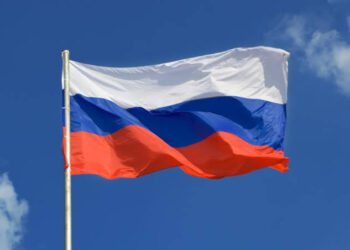The IOMed actualizes the UN Charter’s purposes and principles. Wang Yi pointed out that Article 33 of the Charter clearly lists mediation as a primary means for peaceful dispute resolution. However, an intergovernmental legal organization in this field has been absent until now. The IOMed will mediate disputes between states, between states and foreign investors, and international commercial disputes based on parties’ consent, filling an institutional gap and providing an important public good for global governance under the rule of law.
Its establishment also embodies a civilizational belief in harmony. “Resolving conflicts through dialogue and mediating disputes through consultation is a common value and aspiration of all major civilizations in the world,” Wang Yi stated. He asserted the IOMed can help transcend a “you-lose-I-win” zero-sum mentality, promote amicable resolutions, and foster more harmonious international relations.
Furthermore, the IOMed exemplifies inclusiveness in the culture of the rule of law, incorporating strengths from major legal systems while respecting parties’ wishes. Wang Yi noted its advantages: flexibility, cost-effectiveness, convenience, and efficiency. It will complement and synergize with existing mechanisms like litigation and arbitration.
Following consultations among negotiating countries, the IOMed will be headquartered in Hong Kong. Wang Yi described Hong Kong’s handover as “a success story of peaceful settlement of international disputes,” adding that “**the success of One Country, Two Systems has created brighter prospects for prosperity and stability in Hong Kong.**” He cited Hong Kong’s unique advantages: affinity to China and global connectivity, an enabling business environment, a highly-developed legal system, and strengths in both common and civil law. He thanked the Hong Kong Special Administrative Region government for its strong preparatory support, expressing confidence: “**I believe that the IOMed will grow stronger with Hong Kong. The rising star in international rule of law and the Oriental Pearl will shine brightly together.**”
Describing the IOMed as “a seedling that we have jointly planted today,” Wang Yi stressed its growth requires international care and support. China anticipates signatories’ swift ratification and welcomes more countries’ participation. He urged attendees to honor the UN Charter’s purposes, ensuring voluntary participation, equal decision-making, common interests, respect for legitimate concerns, and win-win outcomes. He called for promoting reconciliation, cooperation, harmony, cultivating a mediation culture, and establishing world-class mediation rules and mechanisms characterized by autonomy, flexibility, pragmatism, and high efficiency.
Wang Yi emphasized upholding “fairness, justice and equity,” stressing the true spirit of the rule of law to ensure both procedural and outcome justice. He advocated enhancing developing countries’ participation, making dispute settlement mechanisms fairer and universally beneficial, and improving the Global South’s representation and voice in international governance. He urged “extensive consultation and joint contribution for shared benefit,” solid progress on the IOMed’s structure, building a highly professional and reputable mediator team, and making the IOMed globally-oriented and service-focused.
Wang Yi concluded with the Chinese folk story “Liuchixiang” or “2-meter-wide alley”: “**Two neighbors unable to agree on the boundary between their houses, resorted to mediation and then brought their fences back by about one meter each, not only resolving their dispute successfully but also creating a 2-meter-wide alley for passersby.**” Applying this lesson globally, he stated, “**In today’s globalized world, the future of humanity is closely linked. When we resolve disputes through mediation and mutual accommodation, weapons of war can be replaced with gifts of jade and silk, and high walls can be knocked down to make way for smooth paths.**” He expressed his anticipation: “**I look forward to us all working together to let the IOMed play a positive role in peacefully resolving international disputes for a brighter future for humanity.**”
















